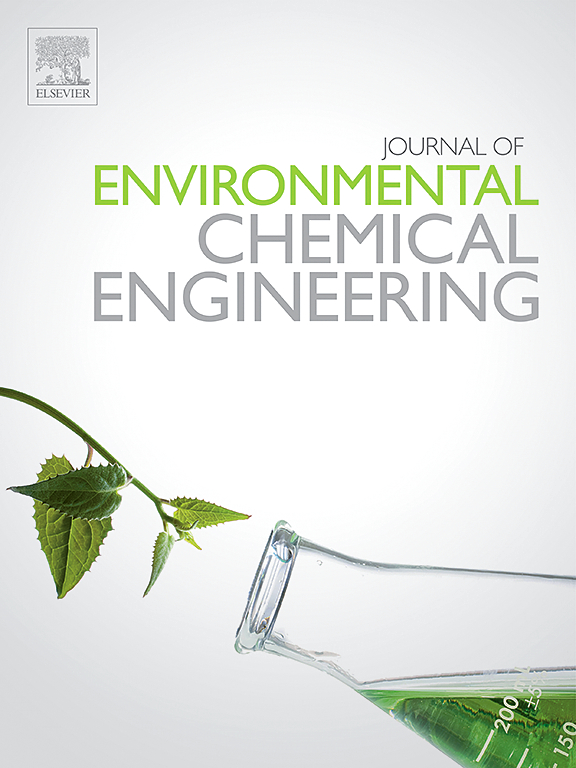通过整体视角重新设想当代分散式废水管理的批判性回顾
IF 7.2
2区 工程技术
Q1 ENGINEERING, CHEMICAL
引用次数: 0
摘要
由于全球对清洁水的需求不断增加,气候变化导致的水资源短缺加剧了全球对清洁水的需求,分散式废水管理(DWM)迅速发展。今天,关于分散式废水处理系统(DWTS)的文献已经大量存在,主要是通过对好与坏的话语概念将它们与集中式废水处理系统(CWTS)进行比较,从而导致废水处理的一刀切解决方案。这篇批判性的综述全面概述了DWTS作为现有废水管理方法(集中式/现场)的“互补-非竞争”解决方案,并评估了CWTS在哪些方面是有益的。本研究探讨了有效和可持续实施DWTS的多方面机会,为DWM的整体规划提供了前景。研究重点是创新核心技术,这些技术构成了大多数DWTS设计的基础,无论是独立的还是集成的,包括基于人工湿地(CW)的系统,基于过滤床的系统,分散式废水处理系统(DEWATS)和基于膜生物反应器(MBR)的系统。已经确定了在提高DWTS潜力方面发挥关键作用的关键因素,如预期的最终用途、目标污染物、场地特定特征和实施成本。该研究还纳入了DWTS的各种技术经济(TEA)和生命周期评估(LCA)研究。介绍了综合DWM和粪便污泥(FS)处理的概念模型,以发展促进可持续废物-废水管理的观点。通过总结处理方法之间的共同挑战,本综述为利用DWTS在实现节能和碳中和解决方案方面的潜力提供了路线图,同时概述了推进循环经济(CE)的未来研究方向。本文章由计算机程序翻译,如有差异,请以英文原文为准。
A critical review on re-envisioning contemporary decentralized wastewater management through a holistic lens
Decentralized wastewater management (DWM) has rapidly advanced due to the increasing global demand for clean water, intensified by climate change-induced water scarcity. Today, a pool of well-documented literature on decentralized wastewater treatment systems (DWTS) exists, mostly comparing them over the centralized wastewater treatment systems (CWTS) through a discursive notion of good and bad, resulting in one-size-fits-all solutions for wastewater treatment. This critical review presents a comprehensive overview of DWTS as a “complementary-not-competing” solution to existing wastewater management approaches (centralized/onsite) and evaluates where CWTS is beneficial. The study explores multifaceted opportunities for effective and sustainable implementation of DWTS to provide prospects to holistically plan DWM. Research focused on innovating the core technologies, that form the foundation most DWTS design whether standalone or integrated, including constructed wetland (CW)-based systems, filter bed-based systems, decentralized wastewater treatment system (DEWATS), and membrane bioreactor (MBR)-based systems has been thoroughly discussed. Key factors that play a pivotal role in enhancing potential of DWTS such as intended end-use, targeted pollutants, site-specific characteristics, and implementation costs have been identified. The study also incorporates various techno-economic (TEA) and life cycle assessment (LCA) studies of DWTS. A conceptual model for integrated DWM and faecal sludge (FS) treatment to develop a perspective towards promoting sustainable waste-wastewater management has been introduced. By summarizing shared challenges between treatment approaches, this review offers a roadmap for harnessing the potential of DWTS in achieving energy-efficient and carbon-neutral solutions, while outlining future research directions to advance the circular economy (CE).
求助全文
通过发布文献求助,成功后即可免费获取论文全文。
去求助
来源期刊

Journal of Environmental Chemical Engineering
Environmental Science-Pollution
CiteScore
11.40
自引率
6.50%
发文量
2017
审稿时长
27 days
期刊介绍:
The Journal of Environmental Chemical Engineering (JECE) serves as a platform for the dissemination of original and innovative research focusing on the advancement of environmentally-friendly, sustainable technologies. JECE emphasizes the transition towards a carbon-neutral circular economy and a self-sufficient bio-based economy. Topics covered include soil, water, wastewater, and air decontamination; pollution monitoring, prevention, and control; advanced analytics, sensors, impact and risk assessment methodologies in environmental chemical engineering; resource recovery (water, nutrients, materials, energy); industrial ecology; valorization of waste streams; waste management (including e-waste); climate-water-energy-food nexus; novel materials for environmental, chemical, and energy applications; sustainability and environmental safety; water digitalization, water data science, and machine learning; process integration and intensification; recent developments in green chemistry for synthesis, catalysis, and energy; and original research on contaminants of emerging concern, persistent chemicals, and priority substances, including microplastics, nanoplastics, nanomaterials, micropollutants, antimicrobial resistance genes, and emerging pathogens (viruses, bacteria, parasites) of environmental significance.
 求助内容:
求助内容: 应助结果提醒方式:
应助结果提醒方式:


